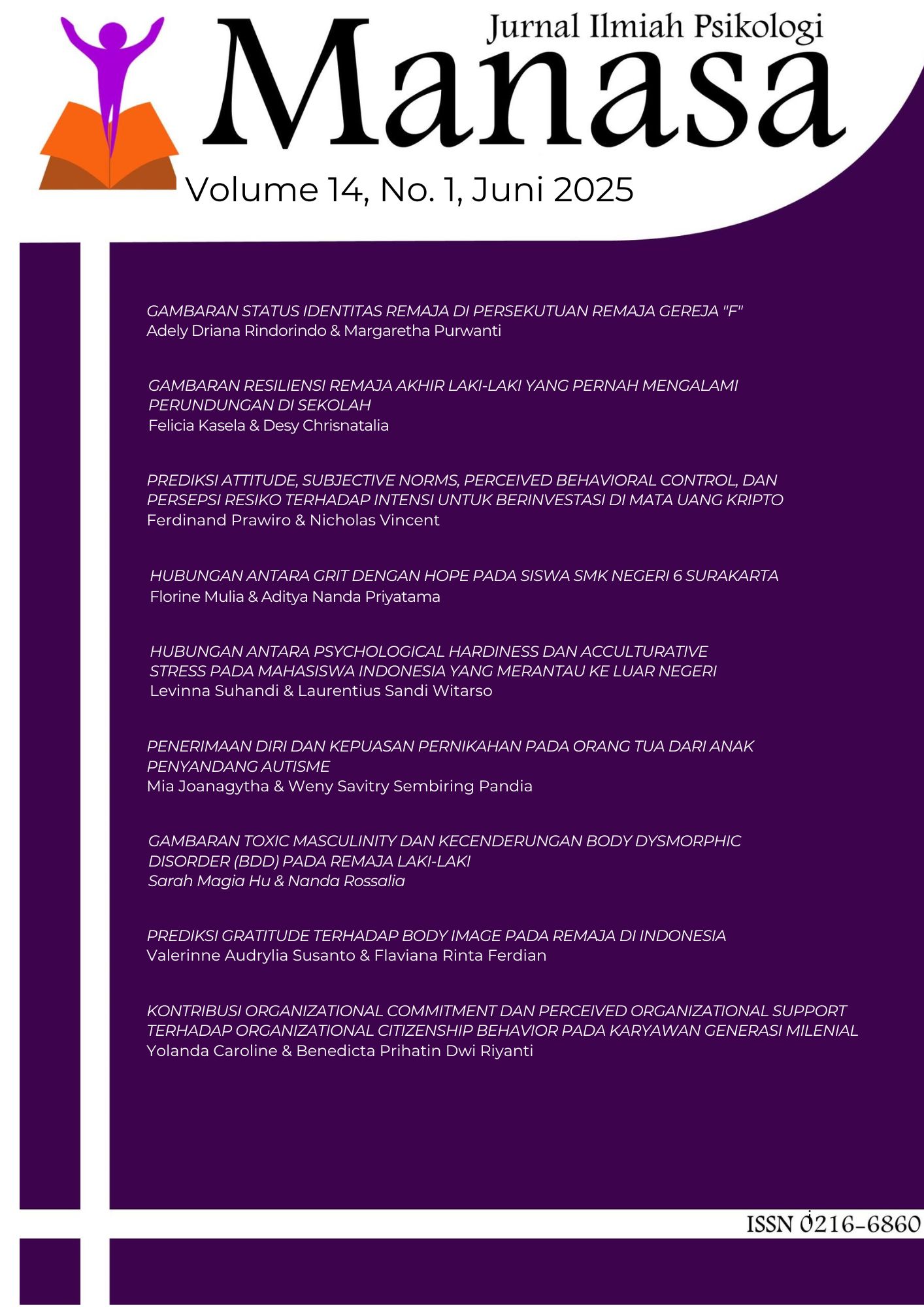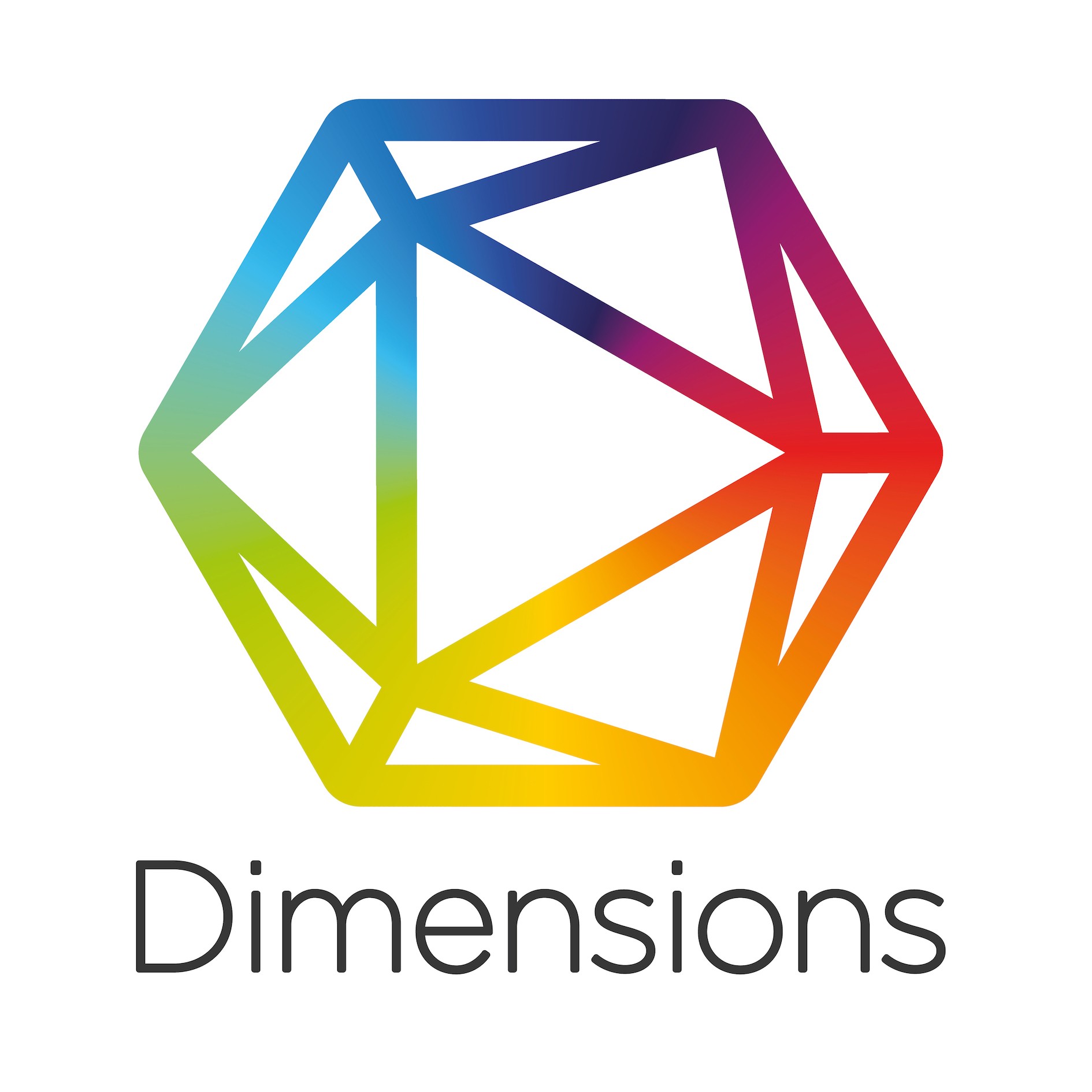Gambaran Status Identitas Remaja di Persekutuan Remaja Gereja "F"
DOI:
https://doi.org/10.25170/manasa.v14i1.6169Keywords:
fellowship group, identity status, adolescents, adolescence developmentAbstract
Adolescence is a crucial phase for identity formation, requiring proper guidance to avoid confusion or inappropriate development. The Youth Fellowship at Church "F" seeks to assess the identity status of adolescents they mentor to create tailored programs. This study used a descriptive quantitative approach with 40 participants aged 13-16 from the fellowship. Data were collected using The Revised Objective Measure of Ego Identity Status, validated for reliability and contextual relevance. The study revealed that none of the adolescents had achieved identity achievement status. Most were in the diffusion status for both ideological (career, religion, politics, and philosophy) and interpersonal (friendships, partnerships, gender roles, and recreation) aspects. Adolescents in this status showed limited desire to explore or commit to these areas. Additionally, some adolescents were in foreclosure status, characterized by identity development shaped by external influences like parents or schools without personal exploration. The findings highlight the importance of mentors addressing the needs of adolescents at all identity statuses. Special attention is recommended for those in foreclosure status, as their identity development may lack the autonomy required for healthy growth. Tailored mentoring programs should encourage exploration and self-discovery to support identity development effectively. These results provide valuable insights for designing programs that cater to the unique developmental needs of adolescents in the Youth Fellowship at Church "F."
References
Adams, G. R. (1998). The objective measure of ego identity status: A reference manual.
Babbie, E. (2011). The basics of social research (6th ed.). Wadsworth, Cengage Learning. ISBN-13: 978-1-133-60759-5.
Chanu, L. M., & Maraichelvi, K. A. (2021). Identity status of youth. Journal of Scientific Research, 65(4), 50-54. http://dx.doi.org/10.37398/JSR.2021.650409.
Creswell, J. (2015). Educational research: Planning, conducting and evaluating quantitative and qualitative research (5th ed.). Pearson Education, Inc. ISBN-13: 978-0-13-354958-4.
Creswell, J. W. (2012). Educational research: Planning, conducting and evaluating quantitative and qualitative research (4th ed.). Pearson Education, Inc. ISBN-13: 978-0-13-136739-5.
Crocetti, E., Branje, S., Rubini, M., Koot, H. M., & Meeus, W. (2017). Identity processes and parent-child and sibling relationships in adolescence: A five-wave multi-informant longitudinal study. Child Development, 88(1), 210-228. https://doi.org/10.1111/cdev.12547.
Crocetti, E., Klimstra, T. A., Hale, W. W., Koot, H. M., & Meeus, W. (2013). Impact of early adolescent externalizing problem behaviours on identity development in middle to late adolescence: A prospective 7-year longitudinal study. Journal of Youth and Adolescence, 42(11), 1745–1758. https://doi.org/10.1007/s10964-013-9924-6.
Crocetti, E., Rubini, M., & Meeus, W. (2008). Capturing the dynamics of identity formation in various ethnic groups: Development and validation of a three-dimensional model. Journal of Adolescence, 31(2), 207-222. https://doi.org/10.1016/j.adolescence.2007.09.002.
Dastjerdi, R., Farshidfar, Z., & Hajiabadi, M. (2022). Academic identity status and psychological well-being among medical sciences students. Future of Medical Education Journal, 12(1), 41. https:// 10.22038/fmej.2022.51357.1378
Feist, J., Feist, G. J., & Roberts, T. (2013). Theories of personality (8th ed.). McGraw-Hill Education.
Gyberg, F., & Frisen, A. (2017). Identity status, gender, and social comparison among young adults. An International Journal of Theory and Research, 17(4), 239-252. https://doi.org/10.1080/15283488.2017.1379905.
Hatano, K., Sugimura, K., & Crocetti, E. (2015). Looking at the dark and bright sides of identity formation: New insights from adolescents and emerging adults in Japan. Journal of Adolescence, 47(1), 156-168. https://doi.org/10.1016/j.adolescence.2015.09.008.
Karas, D., Cieciuch, J., Negru, O., & Crocetti, E. (2014). Relationships between identity and well-being in italian, polish, and romanian emerging adults. Social Indicators Research, 121(3), 727–743. https://doi.org/10.1007/s11205-014-0668-9.
Kolbert, J. B., Hilts, D., Crothers, L. M., & Nice, M. L. (2021). School counselor's use of marcia's identity status theory for career advisement and consultation and collaboration. Journal of School Counseling, 19. https://eric.ed.gov/?q=Kolbert%2c+Hilts&id=EJ1326053.
Kroger, J. & Marcia, J. E. (2011). The identity statuses: origins, meanings, and interpretations. Handbook of identity theory and research. Springer, New York. https://doi.org/10.1007/978-1-4419-7988-9_2.
Kroger, J., Martinussen, M., & Marcia, J. E. (2009). Identity status change during adolescence and young adulthood: A meta-analysis. Journal of Adolescence, 33(5), 683-698. https://doi.org/10.1016/j.adolescence.2009.11.002.
Marcia, J. E. (2002). Identity and psychosocial development in adulthood. Identity, 2(1), 7–28. https://doi.org/10.1207/s1532706xid0201_02.
Marcia, J. E., Waterman, A. S., Matteson, D. R., Archer, S. L., & Orlofsky, J. L. (1993). Ego identity: A handbook for psychosocial research. Springer-Verlag New York Inc.
Muttaqin, D. (2022). Profil status identitas remaja: Analisis kluster berdasarkan tiga dimensi identitas. Jurnal Psikologi Sains dan Profesi, 6(2), 140-152. https://repository.ubaya.ac.id/42719/1/Darmawan%20Muttaqin_Profil%20Status%20Identitas%20Remaja.pdf.
Pertiwi, H., Zakiyah, & Sutandi, A. (2020). Status perkembangan dan identitas diri remaja di smp negeri 49 kramat jati jakarta timur. Jurnal Kesehatan Saelmakers PERDANA (JKSP), 3(1), 97-103. https://doi.org/10.32524/jksp.v3i1.235.
Pop, E., Negru-Subtirica, O., Crocetti, E., Opre, A., & Meeus, W. (2016). On the interplay between academic achievement and educational identity: A longitudinal study. Journal of Adolescence, 47(1), 135-144. https://doi.org/10.1016/j.adolescence.2015.11.004.
Santrock, J. W. (2020). A topical approach to life-span development (10th ed.). McGraw-Hill Education.
Santrock, J. W. (2019). Adolescence (17th ed.). McGraw-Hill Education.
Santrock, J. W. (2020). Essentials of life-span development (6th ed.). McGraw-Hill Education.
Sarwono, S. W. (2021). Psikologi remaja (1st ed.). Rajawali Pers.
Shaffer, D. R., & Kipp, K. (2014). Developmental psychology childhood & adolescence (9th ed.). Cengage Learning.
Sugimura, K., Niwa, T., Takahashi, A., Sugiura, Y., Jinno, M., & Crocetti, E. (2015). Cultural self-construction and identity formation in emerging adulthood: A study on Japanese university students and workers. Journal of Youth Studies, 18(10), 1326-1346. https://doi.org/10.1080/13676261.2015.1039964.
Untoro, V., & Putri, M. A. (2019). Status identitas dan toleransi beragama pada remaja. Jurnal Psikologi Teori dan Terapan, 10(1), 46-59. https://doi.org/10.26740/jptt.v10n1.p46-59.
Downloads
Published
Issue
Section
License
Copyright (c) 2025 MANASA

This work is licensed under a Creative Commons Attribution-NonCommercial-ShareAlike 4.0 International License.









.png)
.png)

